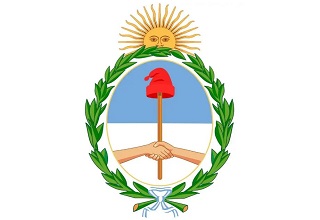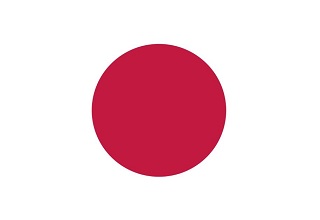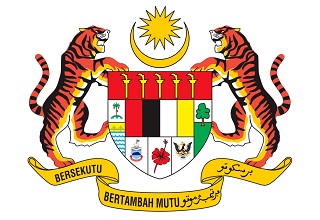Regarding the Inspection and Quarantine Requirements for the Edible Aquatic Animals of Indonesia
1. Basis for inspection and quarantine
(1) "Biosecurity Law of the People's Republic of China";
(2) The Law of the People's Republic of China on the Quarantine of Animals and Plants Entering and Leaving the Country and its implementing regulations;
(3) The Food Safety Law of the People's Republic of China and its implementing regulations;
(4) The Law of the People's Republic of China on the Inspection of Import and Export Commodities and its implementing regulations;
(5) Measures for the Supervision and Administration of the Inspection and Quarantine of Imported Aquatic Animals;
(6) Protocol between the General Administration of Customs of the People's Republic of China and the Quarantine Bureau of the Republic of Indonesia on the Quarantine and Sanitary Requirements for the Export of Edible Aquatic Animals from the Republic of Indonesia to China (hereinafter referred to as the "Protocol").
2. The scope of imported products
The edible aquatic animals mentioned in this announcement refer to the fish, crustaceans, molluscs and other live aquatic animals originating in Indonesia and exported to China for consumption, and the production methods include wild fishing and artificial breeding, and the specific species do not include the species listed in the appendix of the Convention on International Trade in Endangered Species of Wild Fauna and Flora (CITES), the List of Wild Animals under National Key Protection and the List of Invasive Alien Species under Key Management in China.
3. Requirements of production enterprises
Production enterprises (including breeding farms and transit packaging yards) exporting edible aquatic animals to the People's Republic of China shall meet the following conditions:
(1) Approved and effectively supervised by the Quarantine Bureau of the Republic of Indonesia (hereinafter referred to as the Indonesian side), recommended to the General Administration of Customs of the People's Republic of China (hereinafter referred to as the Chinese side), and obtained the registration qualification of the Chinese side. The list of registered production enterprises will be published on the website of the General Administration of Customs.
(2) Edible aquatic animals exported to China shall comply with the quarantine and safety and health requirements of edible aquatic animals of the People's Republic of China and the Republic of Indonesia.
(3) Manufacturers shall establish and implement a self-inspection, self-control and traceability system for the safety and health of edible aquatic animals to ensure that the whole process of breeding, fishing, packaging, storage, transportation, transit and export meets the relevant health and traceability requirements of both sides.
4. The requirements of imported products
(1) Wild-caught edible aquatic animals exported to China shall be legally fished in Indonesia's own or international waters; In the case of artificial aquaculture, it shall be cultivated in Indonesia's own waters.
(2) Drugs prohibited by both sides were not used during the breeding, harvesting, temporary raising, packaging, and transportation of edible aquatic animals exported to China. Use of medications that are restricted or permitted by both parties as prescribed.
(3) The Indonesian side shall carry out effective monitoring of animal diseases, toxic and harmful substances and foodborne microorganisms for edible aquatic animals exported to China, and the monitoring results shall meet the requirements of China's safety and health standards.
5. Packaging and labeling requirements
(1) Edible aquatic animals exported to China from different fishing areas or registered enterprises should be packaged separately, and different types of edible aquatic animals should be packaged separately.
(2) The packaging container should be brand new or sterilized to meet the needs of animal survival and welfare.
(3) Packaging materials, water, ice and bedding materials shall meet safety and health requirements, and shall not contain pathogenic microorganisms, toxic and harmful substances that endanger the health of animals and plants and human beings, as well as aquatic organisms that may damage the ecological environment of water bodies.
(4) A Chinese label shall be affixed to the outer packaging, including: the name and scientific name of the edible aquatic product, the fishing area (only applicable to wild-caught aquatic animals), the name of the farm/transit packing yard and the export enterprise, registration number and other information, and the destination must be marked as the People's Republic of China.
6. Pre-export inspection and quarantine and certificate requirements
(1) Edible aquatic animals shall be confirmed to be healthy by the official veterinary clinical examination of the Indonesian side before export, and no clinical symptoms of animal infectious diseases or parasitic diseases have been found.
(2) The Indonesian side shall provide the Chinese side with the health certificate agreed by both parties and the sample of the official seal of the issuing authority for the record in advance, and issue a health certificate for the products exported to China according to the sample of the health certificate agreed by both sides. The certificate should be completely filled in with the breed of edible aquatic animals, production method (breeding or fishing), packaging type, quantity or weight, mode of transportation, name of farm/transit packing yard and export enterprise, registration number and other information, and declare suitable for human consumption.
(3) Each batch of edible aquatic animals exported to China must be accompanied by an official health certificate, and the original must accompany the goods. The health certificate must be printed in at least English and cannot be handwritten (unless signed by the veterinary officer) or altered.
7. Requirements for entry inspection and quarantine
(1) Quarantine approval.
For the import of edible aquatic animals into Indonesia, the quarantine approval procedures shall be completed in advance and the "Quarantine Permit for Imported Animals and Plants" shall be obtained.
(2) Verification of certificates.
1. Check whether the "Quarantine Permit for Imported Animals and Plants" is attached.
2. Check whether it is from a registered enterprise.
3. Check whether the health certificate is true and valid.
(3) Cargo inspection.
In accordance with relevant laws, administrative regulations, rules and other provisions, and in combination with these requirements, China Customs shall carry out inspection and quarantine on imported edible aquatic animals from Indonesia. Those who pass the inspection and quarantine shall be allowed to enter the country.
(4) Handling of unqualified situations.
1. If unqualified conditions are found in the process of certificate verification and cargo inspection, they shall be dealt with in accordance with the relevant laws and regulations of our country.
2. If major safety and health problems are discovered, China will take measures such as strengthening inspection and quarantine, suspending the export of relevant enterprises to China, and even suspending the export of relevant edible aquatic animals from Indonesia to China according to the situation.
8. Other requirements
(1) The occurrence of aquatic animal diseases listed in the List of Quarantine Diseases of Imported Animals of the People's Republic of China and the notifiable diseases stipulated by the World Organisation for Animal Health (WOAH) occur in Indonesia, causing aquatic animals exported to China to be or may be infected.
(2) Any major food safety incident in Indonesia that has affected or may affect the export of edible aquatic animals to China.
(3) Indonesia's export of edible aquatic animals to China seriously violates Chinese laws and regulations and the provisions of the Protocol.
(4) A major public health incident occurs in an Indonesian production enterprise, such as an employee infected with a major infectious disease, which has contaminated or may contaminate edible aquatic animals exported to China and their packaging and means of transportation.
The Indonesian side should immediately stop the export of all edible aquatic animals to China in the corresponding fishing areas, farms, production enterprises, regions and even the whole country, recall the problematic products and potentially risky products, and notify the Chinese side with detailed information on the investigation of the incident, the handling of the incident, and the next control measures. Only after the Chinese side confirms that the above-mentioned risks have been eliminated or reduced to a controllable range, can the export of edible aquatic animals to China be resumed.
GACC
October 30, 2023




